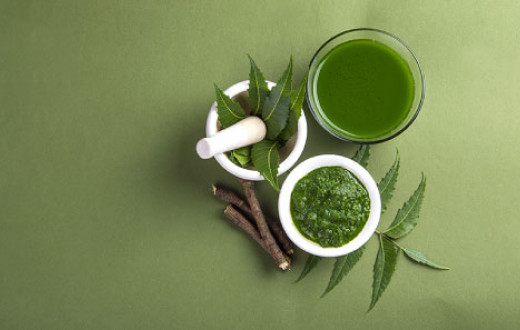An insight into the five key S's that establish and sustain a calm and happy state of mind.
Swasthya (Health)
Most of us associate health with being fit at the body level and being free of ailments. In Sanskrit, the state of good health is called “swasthya”. It goes beyond physical health and encompasses mental and emotional health as well. In fact, the real meaning of swasthya is ‘being established in one’s Self’.
Gurudev Sri Sri Ravi Shankarji says, ”Health is not the mere absence of disease. It is a dynamic expression of life – in terms of how joyful, loving, and enthusiastic you are.”
Why mental health is important
For our physical health, we do a number of things by taking care of our diet,sleep, exercise, visiting a doctor when required, or taking preventive care. To be called healthy in the truest sense, it is not only important to be physically fit but also mentally serene and emotionally soft.
When we pay attention to mental health, we have a pleasant and happy state of mind that reflects in all that we do. Similarly, when our emotions are balanced, we exude positivity and experience connectedness in our interactions with people. Only when we are stress-free can we achieve an optimum level of physical, mental, and emotional health.
Swachhata (Hygiene)
Have you ever thought of getting up in the morning and going straight to work without brushing your teeth? The thought itself is quite disgusting - and doesn’t even cross your mind! But for a moment, hypothetically, imagine if you did that, how would you feel when you stepped out? Your attention would be completely on the discomfort within your mouth. The uneasiness, the feeling of something being incomplete would be overpowering.
Now, how do you think people around you would react if they came close to you? The bad odor would be repulsive; they will probably stay away from you. It is possible that someone even talks behind your back. Naturally, dental hygiene is a must in our lives and something we take for granted as adults!
But have you ever wondered about mental hygiene?
What happens when we step out in the world with negativity in our minds? We get angry over small things, we get frustrated over others’ imperfections, we are bogged down by jealousy and hatred for people around us whom we sometimes cannot avoid, and the list goes on. Eventually, we are not at peace with who we are. Often, we regret what we did or said and the sense of joy and enthusiasm eludes us.
The effect it has on people around us is sometimes even harsher. Through our words and actions coming out of a negative mindset, we have the potential to create disturbance in others. If you had a fight at home in the morning and vented it out on a subordinate in office, you have possibly ruined what could have been a great day for him/her. Many times, due to our behavior, people get upset, angry, or sad thus pulling down their energy and all this, in some way, impacts us too. Our lack of attention to mental hygiene does a lot of damage to us and people we interact with, but we often neglect to give it due importance.
Soundarya (Beauty)
How much importance do we place on looking beautiful? Quite a lot, isn’t it? Whenever we have to step out, whether to our workplace or even for a casual outing, we spend a good amount of time and effort in grooming ourselves - choosing the right clothes for the day, making sure our accessories match our clothes, and so on. If the occasion, or the person we are meeting, is special, the attention to looking good becomes that much more.
All of us have an innate desire to be liked and appreciated and outer beauty constitutes a major component of it. But have you observed that the effect of outer beauty is short-lived? If you observe closely, you will realize that people are, actually, far more attracted to your inner beauty.
Inner beauty
But, are you really giving mental well-being the same or higher importance than you give your outer appearance? If you do, you become beautiful inside out. Think of a popular friend in your group - it’ll be someone who is happy, lively, caring, and takes everyone along. Only a stress-free mind can exhibit such virtues.
When we are stress-free, our personality becomes pleasing and attractive. We are also able to control our negative emotions, like anger, greed, jealousy, frustration etc. much more effectively. Given the hectic pace that we have to manage on a daily basis and unhealthy lifestyle habits, stress often creeps in.
How does one deal with this? What is needed are practical tools and techniques that have a long-lasting impact. Pranayamas, Sudarshan Kriya (a rhythmic powerful breathing technique), and meditation are tangible methods that allow our inner beauty to shine forth.
Samabhaav (Equanimity)
The ability to handle difficult situations with equanimity is a skill all of us would like to possess. Have you noticed that some people get shaken by adverse or favorable situations very easily? Think of someone who has won a huge sum in a lottery and gets so excited and spends it all. Or you may have heard of businessmen who suffered a major setback and were not in a position to move forward with courage and confidence.
By taking some time out and attending to our mental health through certain practices, we develop this quality of being poised and dignified however the circumstances around us may be. Life has its ups and downs for everyone but through that, we are able to keep an equanimous state of mind. We don’t start blaming others or ourselves for our problems; instead, we start looking for solutions to handle the issue at hand.
This allows us to not only manage ourselves better but also be a source of strength to people around. Would we not want to be an example to others? When the going gets tough, through a balanced state of mind, we can display courage, confidence, and an unshakeable inner strength that everyone would like to emulate. All it requires is a willingness to attend to our mental well-being and apply the learnings in our day-to-day lives.
Shasan to Anushasan (Rules to Discipline)
Rules are the laws that society imposes on us while the laws that we impose on ourselves are called discipline. It may seem like where there is discipline, freedom is not there and when one has freedom, there tends to be no discipline but on closer observation we find that they go hand in hand. To give an example, if we have the discipline of brushing our teeth regularly, we can be free of toothache. Similarly, if we have the discipline of spending some time attending to our breath and meditating, we can be free from stress.
The road to a happy and healthy life
Practices done to take care of our mental well-being also require a commitment over a sustained period of time to give benefit. Do you remember how much you cried and shouted and fought with your parents when they made you brush your teeth as a small child? But they persisted till it became a habit for you. Now as adults, we don’t even think of brushing our teeth daily as a task to do.
Similarly, we may initially need to create some rules for ourselves to do pranayama, yoga, breathing techniques, and meditation but as we do it consistently, it becomes natural to us. With sustained practice, it becomes effortless and the joy that one gets from a stress-free, calm, and happy mind is unparalleled. And only discipline can help us reach there.
Written by: Aditi Jain
A little note: As community conversation facilitators, we believe in giving an individual the autonomy of expression. The views expressed in this piece are the author's own.





















